Learning is an active process of acquiring knowledge through experiences, environments, and mental engagement. Theories like behaviorism, cognitivism, and constructivism explain how individuals process and retain information, shaping educational practices and understanding human development.
1.1 Overview of Learning Theories
Learning theories are frameworks explaining how people acquire knowledge and skills. They include behaviorist, cognitive, and constructivist approaches, each offering insights into the learning process. These theories help educators design effective strategies, understand individual differences, and create engaging environments that promote meaningful learning experiences.
1.2 Importance of Understanding Learning Processes
Understanding learning processes is crucial for effective education. It helps educators tailor methods to individual needs, fostering engagement and outcomes. By recognizing how people acquire knowledge, teachers can address barriers, enhance retention, and create inclusive environments that support diverse learners and promote lifelong learning opportunities.
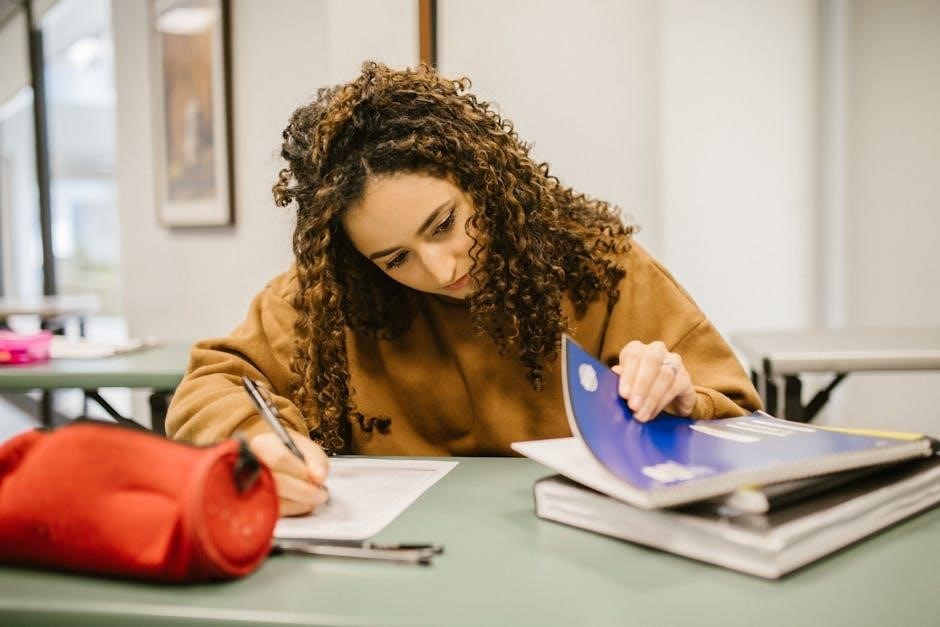
Behaviorist Theory of Learning
Behaviorist theory explores learning through observable behaviors shaped by environmental stimuli and reinforcement, emphasizing external factors influencing knowledge acquisition and skill development;
2.1 Classical Conditioning: Key Concepts
Classical conditioning involves associative learning, where neutral stimuli become linked to naturally occurring stimuli, eliciting responses. Ivan Pavlov’s experiments demonstrated how this process shapes behavior through repeated pairings, highlighting the role of environment in automatic responses and laying the foundation for understanding behavioral learning mechanisms.
2.2 Operant Conditioning: Key Concepts
Operant conditioning, developed by B.F. Skinner, explains learning through consequences of actions. Behavior is modified by rewards, punishments, or their absence. Positive reinforcement increases desired behaviors, while negative reinforcement removes unpleasant stimuli. Punishment reduces undesired actions, shaping behavior based on environmental feedback and voluntary responses.
2.3 Practical Applications of Behaviorist Theory
Behaviorist theory is widely applied in education, workplace training, and therapy. Techniques like positive reinforcement, token systems, and behavior modification are used to shape desired behaviors. In classrooms, rewards for good performance encourage learning. In workplaces, incentives improve productivity. Therapy uses reinforcement to address behavioral challenges, demonstrating the theory’s practical effectiveness.
Cognitive Theory of Learning
Cognitive theory emphasizes internal mental processes, such as memory, problem-solving, and understanding, in learning. It highlights how learners actively organize and interpret information based on prior knowledge and experiences.
3;1 Internal Mental Processes in Learning
Cognitive theory focuses on internal mental processes like perception, attention, memory, and problem-solving. These processes enable learners to organize, interpret, and connect new information with existing knowledge, facilitating deeper understanding and retention of material through active mental engagement and construction of meaning.
3.2 Role of Prior Knowledge and Experiences
Prior knowledge and experiences play a crucial role in learning by serving as a foundation for new information. Learners draw on existing schemas to organize and interpret new content, creating meaningful connections and enhancing understanding through active mental processing and integration of experiences.
3.3 Practical Applications of Cognitive Theory
Cognitive theory’s practical applications include strategies like scaffolding, active recall, and spaced repetition. These methods enhance memory retention and problem-solving skills by engaging learners’ mental processes. Incorporating technology, such as multimedia tools, also aligns with cognitive principles, fostering deeper understanding and effective knowledge construction through varied learning experiences.
Constructivist Theory of Learning
Constructivist theory emphasizes active knowledge construction through personal experiences and social interactions. Learners build understanding by interpreting information, making connections to prior knowledge, and engaging in meaningful contexts.
4.1 Active Construction of Knowledge
Constructivist theory posits that learners actively construct knowledge by engaging with their environment and interpreting experiences. This process involves creating mental frameworks, connecting new information to existing knowledge, and continuously refining understanding through reflection and social interaction.
4.2 Role of Learner Engagement
Learner engagement is central to constructivist theory, emphasizing active participation in knowledge construction. Through critical thinking, problem-solving, and dialogue, learners connect new information to prior experiences, fostering deeper understanding and meaningful learning experiences.
4.3 Practical Applications of Constructivist Theory
Constructivist theory is applied through active learning strategies, such as project-based learning, collaborative activities, and real-world problem-solving. Educators encourage learners to explore, reflect, and construct knowledge, fostering critical thinking and creativity. Technology integration and scaffolded instruction further support personalized learning experiences aligned with individual needs and contexts.
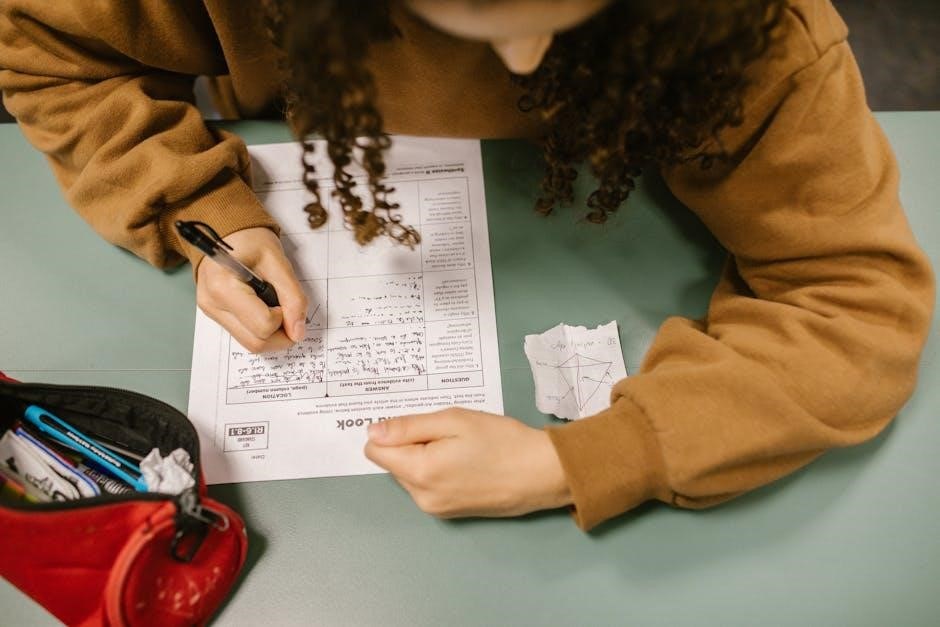
Social Learning Theory
Social learning theory explains how individuals acquire knowledge and behaviors by observing and imitating others. It emphasizes the role of models, environments, and reinforcement in shaping learning processes.
5.1 Learning Through Observation and Imitation
Learning through observation and imitation involves acquiring new behaviors by watching others and replicating their actions. This process is fundamental to social learning, where individuals observe models, perceive outcomes, and imitate actions, influenced by attention, retention, and motivation. It highlights the role of environment and reinforcement in shaping behaviors and knowledge acquisition effectively.
5.2 Role of Models and Environment
Models, such as significant others, demonstrate behaviors that learners imitate, shaping their actions and understanding. The environment provides context, resources, and reinforcement, influencing learning outcomes. Observation and interaction with models, coupled with environmental cues, foster the acquisition of skills and knowledge through reciprocal and dynamic processes that enhance learning effectiveness and retention over time.
5.3 Practical Applications of Social Learning Theory
Social Learning Theory is applied in education, workplace training, and therapy. Techniques include modeling behaviors, providing observational learning opportunities, and using reinforcement to encourage desired actions. This approach enhances skill acquisition, behavior modification, and knowledge retention, making it a valuable tool for fostering positive change in various learning environments and real-world settings effectively.
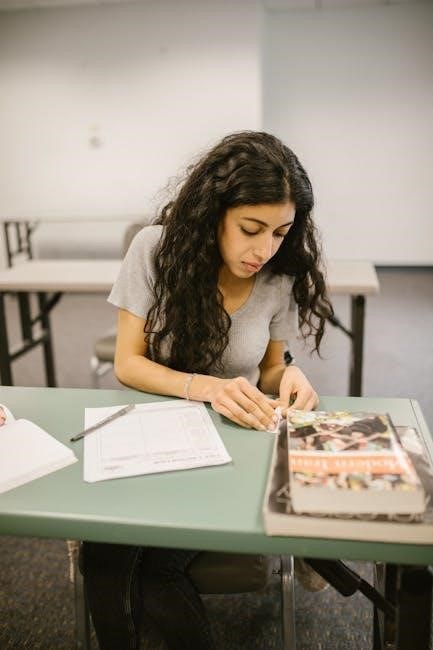
Transformative Learning Theory
Transformative learning involves changing one’s frame of reference through critical reflection and meaningful experiences, leading to deeper understanding and personal growth.
6.1 Changing Frames of Reference
Transformative learning involves revising one’s perspective or interpretation of experiences. This process enables individuals to question assumptions and adopt new meanings, fostering deeper understanding and personal growth through critical reflection and emotional engagement.
6.2 Role of Critical Reflection
Critical reflection in transformative learning involves examining assumptions and perspectives. It encourages individuals to challenge existing beliefs, fostering deeper understanding and meaningful reinterpretation of experiences, leading to personal growth and enhanced problem-solving abilities through intentional analysis and self-awareness.
6.3 Practical Applications of Transformative Learning
Transformative learning is applied in education, fostering critical thinking and perspective shifts. It enhances personal growth, leadership development, and social change by encouraging learners to challenge assumptions and integrate new ideas into their existing knowledge, promoting deeper understanding and meaningful change in diverse contexts.
Cultural-Historical Theory of Learning
Cultural-historical theory emphasizes the role of culture and social interactions in shaping learning. It highlights how tools, activities, and collaborative practices mediate cognitive development and knowledge construction.
7.1 Role of Culture in Shaping Learning
Culture significantly influences learning by shaping values, beliefs, and practices. It determines the tools and activities used in education, mediating cognitive development. Collaborative practices, language, and social interactions are central, emphasizing the role of cultural context in constructing knowledge and skills. This perspective underscores learning as a socially embedded process.
7.2 Activity Theory and Learning Processes
Activity Theory views learning as a mediated process within social activities, emphasizing tools, community, and rules. It highlights how learning is shaped by interactions and shared practices, providing a broader context for understanding cognitive development and collaboration, beyond individual actions.
7.3 Practical Applications of Cultural-Historical Theory
Cultural-Historical Theory emphasizes using cultural tools and collaborative activities to enhance learning. Practical applications include integrating historical contexts into curriculum design, fostering collaborative learning environments, and leveraging artifacts to mediate learning processes, ensuring education is culturally relevant and historically grounded for diverse learners.
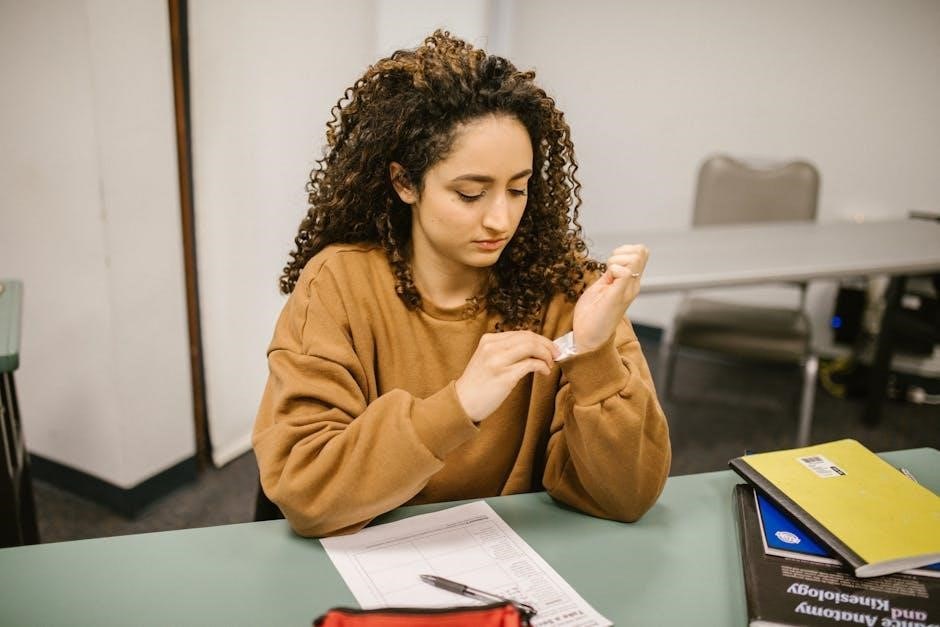
Key Concepts in Learning Theory
Learning theories explore how individuals acquire knowledge, emphasizing active engagement, social interaction, and cognitive processes. They provide frameworks for understanding education, development, and the role of environment in shaping learning experiences.
8.1 Active Engagement in Learning
Active engagement involves learners participating meaningfully in the learning process. It emphasizes hands-on activities, discussions, and problem-solving, fostering deeper understanding and retention. This approach aligns with constructivist and social learning theories, where interaction and experience are central to effective knowledge acquisition and skill development.
8.2 Individual and Social Dimensions of Learning
Learning encompasses both individual and social aspects. Individual dimensions involve personal cognition and internal mental processes, while social dimensions highlight the role of interaction, collaboration, and culture. Together, they shape how knowledge is constructed and shared, reflecting the interplay between personal understanding and collective experiences in educational settings.
8.3 Learner Differences and Their Impact
Learner differences, such as cognitive styles, prior experiences, and cultural backgrounds, significantly influence how individuals acquire and process information. Recognizing these variations is crucial for tailoring educational strategies, ensuring inclusivity, and maximizing learning outcomes for diverse student populations in various educational contexts.
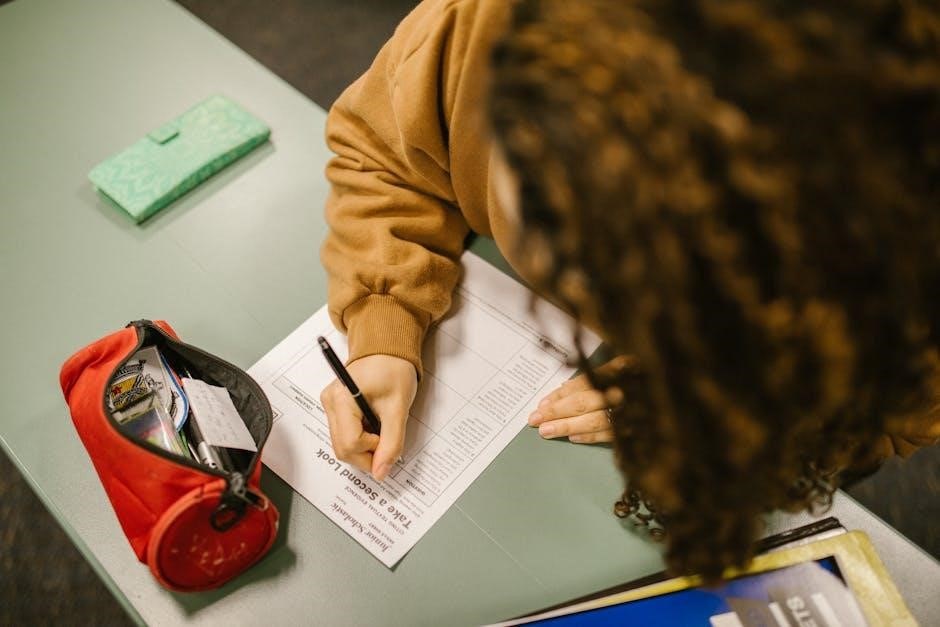
Modern Approaches to Learning
Modern approaches to learning integrate technology and multimedia, enhancing engagement and accessibility. These methods emphasize interactive and personalized experiences, aligning with diverse learner needs and preferences effectively.
9.1 Multimedia Learning Principles
Multimedia learning combines visual and textual information to enhance understanding. Based on the dual coding theory, it engages both hemispheres of the brain, improving retention. Examples include videos, animations, and interactive simulations. These methods promote active engagement, making complex concepts more accessible and fostering deeper learning experiences for diverse learners.
9.2 Role of Technology in Learning Processes
Technology enhances learning by providing interactive and dynamic environments. Tools like simulations, virtual labs, and multimedia resources facilitate deeper engagement. E-learning platforms offer flexibility, while data analytics personalize learning experiences. Technology also bridges gaps, making education accessible and fostering continuous skill development in an ever-evolving digital world.
9.3 Practical Applications of Modern Learning Approaches
Modern learning approaches integrate technology and interactive methods, enhancing engagement. Techniques such as gamification, virtual reality, and AI-driven adaptive learning personalize education. These tools are applied in classrooms, corporate training, and online platforms, improving accessibility and efficiency while addressing diverse learning needs and fostering continuous development.
Learning as a Developmental Process
Learning evolves through stages, shaped by experiences, feedback, and internal growth. It integrates cognitive, social, and emotional development, fostering continuous improvement and adaptation across a lifetime.
10.1 Stages of Learning Development
Learning unfolds through distinct developmental stages, including cognitive, social, and emotional growth. These phases involve progressing from basic skills to complex understanding, adapting to new challenges, and refining knowledge through continuous feedback and adaptation, enabling learners to advance and mature in their educational journey effectively.
10.2 Role of Feedback in Learning
Feedback is essential for guiding learners, clarifying expectations, and fostering improvement. It enhances understanding, identifies gaps, and encourages self-assessment. Timely and constructive feedback promotes engagement, motivation, and refinement of skills, directly influencing the quality of learning outcomes and overall developmental progress.
10.3 Practical Applications of Developmental Learning
Understanding developmental stages informs curriculum design, teaching strategies, and assessment methods. Practical applications include personalized learning plans, scaffolding techniques, and adaptive assessments. This approach ensures learning environments align with learners’ needs, fostering progression and helping educators track developmental milestones effectively.

Challenges and Limitations in Learning
Learning is often hindered by cognitive biases, emotional barriers, and environmental factors. Individual differences, prior experiences, and external pressures can significantly impact the effectiveness of the learning process.
11.1 Common Barriers to Effective Learning
Common barriers to effective learning include cognitive biases, emotional challenges, and environmental distractions. Additionally, gaps in prior knowledge, learning disabilities, and inadequate feedback can hinder the learning process, reducing engagement and retention of information over time.
11.2 Addressing Individual Learning Differences
Addressing individual learning differences requires personalized approaches, such as tailored teaching strategies and adaptive resources. Recognizing diverse learning styles, abilities, and cultural backgrounds ensures inclusive education, fostering engagement and meeting unique needs to optimize learning outcomes for all individuals effectively over time.
11.3 Practical Strategies for Overcoming Learning Challenges
Practical strategies include incorporating active engagement, technology tools, and feedback loops. Encouraging self-assessment and scaffolded learning helps bridge gaps. Utilizing multimedia resources and fostering inclusive environments further supports diverse learners, ensuring equitable opportunities for growth and success in overcoming challenges effectively.
Learning is a dynamic, active process shaped by mental engagement and environmental interactions. Understanding these theories provides insights into effective educational strategies, fostering meaningful knowledge acquisition and personal growth.
12.1 Summary of Key Learning Theories
Behaviorist theory focuses on environmental factors shaping behavior. Cognitive theory emphasizes mental processes. Constructivist theory highlights active knowledge construction. Social learning theory stresses observation and imitation. Transformative learning involves changing perspectives. These theories collectively explain how learning occurs through interaction, reflection, and engagement, guiding educational practices and understanding human development effectively.
12.2 Future Directions in Learning Research
Future research will explore the integration of technology and neuroscience in learning. Personalized learning, AI-driven adaptive systems, and multimedia approaches are expected to enhance educational outcomes. Additionally, cultural and social influences on learning will be further examined to create inclusive, equitable educational environments for diverse learners globally.



